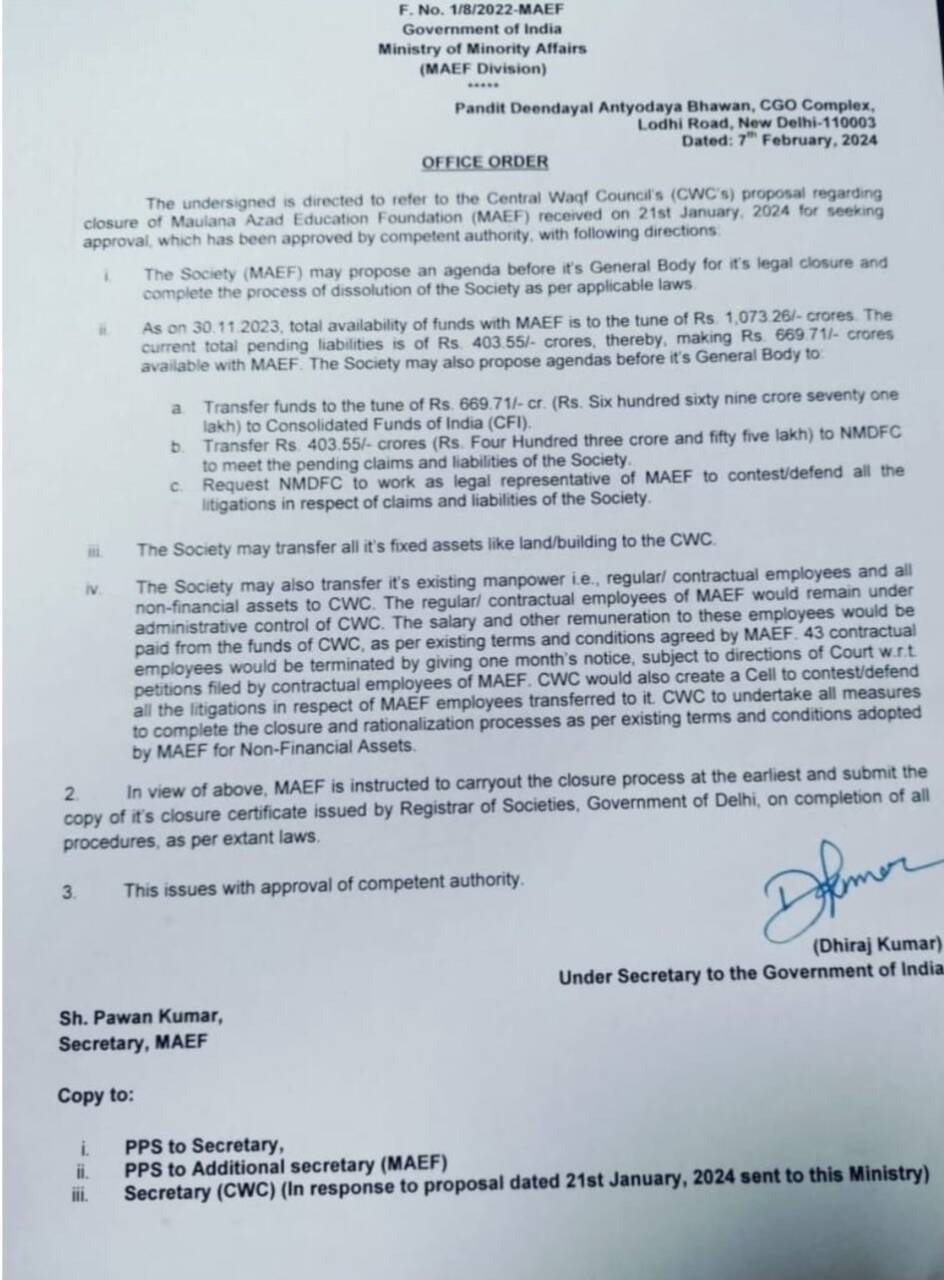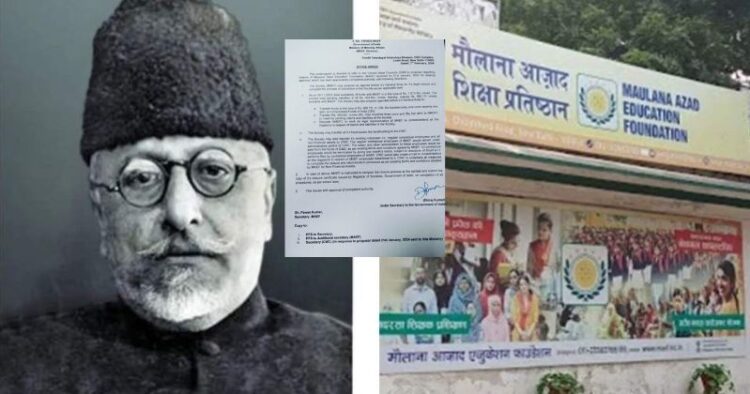The closure of the Maulana Azad Education Foundation (MAEF) has been hailed by some as a pro-secularism act. The move is seen as an effort to discontinue community-specific foundations, fostering a more inclusive approach to minority schemes. Advocates argue that the government, while supporting minority initiatives, should ensure equitable distribution of resources among all communities, including micro-minorities.
There is speculation regarding a scheduled meeting on March 4, 2023 regarding the closure, indicating upcoming discussions and directives. However, the agenda of the meeting remains undisclosed. Reports indicate that the Central Waqf Council is maintaining silence on the matter, amplifying the ambiguity surrounding the decision despite their recommendation for the closure of MAEF.
As of November 30, 2023, MAEF’s funds, totaling Rs 1,073.26 crore have a pending liability of Rs 403.55 crores with balance being Rs 669.71 crores. The ministry has directed the society to propose transferring this amount to the Consolidated Funds of India (CFI) in its General Body meeting and the liabilities to National Minorities Development and Finance Corporation (NMDFC) to address all the pending claims, liabilities.
BIG🔥
MAJOR BLOW TO DUBIOUS FUNDING by .@smritiirani Ji!@MOMAIndia has ordered closure of Maulana Azad Education Foundation, for mismanagement & Suspicion of WRONG FUNDING. Proposal was by Central Waqf Council.
As of 30 Nov 2023, MAEF has funds ₹1073.26 Crores with… pic.twitter.com/OoASba6KsV
— BhikuMhatre (Modi's Family) (@MumbaichaDon) March 1, 2024
Further, it has been directed by the Ministry that the Society has to transfer all its fixed assets, including land and buildings, to the CWC. Furthermore, it will shift both its regular and contractual employees, along with all non-financial assets, to the Central Waqf Council (CWC). The employees of the foundation will be under the supervision and administrative control of CWC and their salaries/ remuneration will be paid through the CWC funds. Also, 43 employees will be terminated by giving a notice of one month, subject to directives of Court petition by them.

On the centenary of Maulana Abdul Kalam Azad, the Maulana Azad Education Foundation (MAEF) was founded in 1989. It was a government-funded organisation. The objective of MAEF was fostering education among the educationally disadvantaged sections of the Muslim community.
In 2009, MANF was launched to provide a five-year financial aid to students from diverse communities, encompassing Buddhists, Christians, Jains, Muslims, Parsis, and Sikhs, enabling them to pursue MPhil and PhD programmes. However, this scheme was discontinued in 2022 on grounds that it was overlapping with other fellowship schemes. The closure of MAEF also led to widespread student protests.
Under this initiative, Junior Research Fellows (JRF) were provided Rs.31,000 monthly for the initial two years, while Senior Research Fellows (SRF) received Rs 35,000 per month for the remaining duration. Up until 2021-22, the Maulana Azad National Fellowship had supported over 6,700 candidates, disbursing a total of Rs 738.85 crore.
The closure of the Maulana Azad Education Foundation (MAEF) has been hailed by some as a pro-secularism act. The move is seen as an effort to discontinue community-specific foundations, fostering a more inclusive approach to minority schemes. Advocates argue that the government, while supporting minority initiatives, should ensure equitable distribution of resources among all communities, including micro-minorities.Critics argue that the government, in funding community-specific foundations, may inadvertently contribute to religious-based discrimination.
Advocates of the closure emphasise that smaller communities deserve equal, if not more, support from the government. By discontinuing the exclusive funding of specific religious foundations, the government aims to create a more level playing field for all minority groups.
Supporters of the closure emphasise the need for a more inclusive approach to minority welfare, where all communities receive fair and equal assistance from the government. The debate underscores the complexity of balancing minority rights while avoiding religious bias in public policies.




















Comments